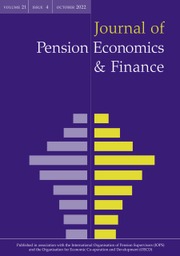Article contents
Pension funds and corporate governance in developing countries: what do we know and what do we need to know?
Published online by Cambridge University Press: 11 October 2004
Abstract
Conventional wisdom holds that pension reforms from pay-as-you-go to fully funded systems spur the development of stock markets through a corporate governance channel, i.e. pension funds become large shareholders of publicly traded firms and therefore have the incentives to monitor managers and improve investor protections. This paper reviews the literature on the corporate governance channel associated with pension reforms in developing countries, and asks what we know and need to know about it. We know that pension funds are not yet large shareholders of publicly traded firms in developing countries. However, econometric results suggest that pension reforms lead to stock market development, but do not allow us to identify and separate the corporate governance channel. We know that pension reforms are followed by pro-investor legislation, but there is no convincing evidence that the pro-investor laws are enforced. We need to know more about the effects of pension reform on stock prices and performance of publicly traded firms, and whether pension fund management companies act in the best interest of pensioners. The paper also reviews the political economy explanations of the links between pension fund specific capital controls and the corporate governance channel, and suggests that there is a trade-off between the objectives of pensioners' welfare maximization, and corporate governance reform and stock market development.
- Type
- Issues and Policy
- Information
- Copyright
- 2004 Cambridge University Press
- 18
- Cited by


